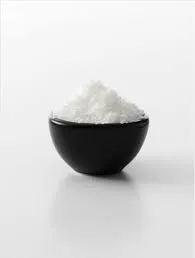- Afrikaans
- Albanian
- Amharic
- Arabic
- Armenian
- Azerbaijani
- Basque
- Belarusian
- Bengali
- Bosnian
- Bulgarian
- Catalan
- Cebuano
- Corsican
- Croatian
- Czech
- Danish
- Dutch
- English
- Esperanto
- Estonian
- Finnish
- French
- Frisian
- Galician
- Georgian
- German
- Greek
- Gujarati
- Haitian Creole
- hausa
- hawaiian
- Hebrew
- Hindi
- Miao
- Hungarian
- Icelandic
- igbo
- Indonesian
- irish
- Italian
- Japanese
- Javanese
- Kannada
- kazakh
- Khmer
- Rwandese
- Korean
- Kurdish
- Kyrgyz
- Lao
- Latin
- Latvian
- Lithuanian
- Luxembourgish
- Macedonian
- Malgashi
- Malay
- Malayalam
- Maltese
- Maori
- Marathi
- Mongolian
- Myanmar
- Nepali
- Norwegian
- Norwegian
- Occitan
- Pashto
- Persian
- Polish
- Portuguese
- Punjabi
- Romanian
- Russian
- Samoan
- Scottish Gaelic
- Serbian
- Sesotho
- Shona
- Sindhi
- Sinhala
- Slovak
- Slovenian
- Somali
- Spanish
- Sundanese
- Swahili
- Swedish
- Tagalog
- Tajik
- Tamil
- Tatar
- Telugu
- Thai
- Turkish
- Turkmen
- Ukrainian
- Urdu
- Uighur
- Uzbek
- Vietnamese
- Welsh
- Bantu
- Yiddish
- Yoruba
- Zulu
Dek . 11, 2024 23:29 Back to list
Doxycycline Hyclate Tablets for Effective Treatment of Bacterial Infections
Doxycycline Hyclate A Comprehensive Overview
Doxycycline hyclate, a broad-spectrum tetracycline antibiotic, is widely used in the treatment of various bacterial infections. As a formulation of doxycycline, it is recognized for its effectiveness against a range of pathogens, including those responsible for respiratory infections, skin infections, urinary tract infections, and even certain sexually transmitted diseases. This article explores the profile of doxycycline hyclate, including its mechanism of action, therapeutic indications, potential side effects, and important considerations for its use.
Mechanism of Action
Doxycycline hyclate works by inhibiting bacterial protein synthesis. It accomplishes this by binding to the 30S ribosomal subunit, which prevents the formation of necessary proteins for bacterial growth and reproduction. This mechanism makes doxycycline effective against both gram-positive and gram-negative bacteria, as well as atypical pathogens like Mycoplasma and Chlamydia. Moreover, doxycycline has anti-inflammatory properties, which can be beneficial in treating infections that involve significant inflammatory responses.
Indications for Use
Doxycycline hyclate is prescribed for a variety of infections and conditions
. Some of its primary uses include1. Respiratory Infections It is commonly used to treat bacterial pneumonia and acute exacerbations of chronic bronchitis. 2. Skin Infections Doxycycline is effective against acne vulgaris and other skin conditions such as rosacea due to its ability to reduce inflammation. 3. Urinary Tract Infections It can be used for uncomplicated UTIs, particularly those caused by susceptible bacteria. 4. Sexually Transmitted Infections Doxycycline is indicated for the treatment of chlamydia and certain other STIs. 5. Malaria Prophylaxis Doxycycline is used as a preventive measure against malaria in travelers to endemic areas. 6. Periodontal Disease It is sometimes used as part of the treatment regimen for periodontitis due to its anti-inflammatory effects.
Dosage and Administration
Doxycycline hyclate is typically administered orally, and the dosage can vary based on the indication being treated. For adults, the usual initial dose is 100 mg, followed by a maintenance dose of 100 mg daily. It is imperative to follow the prescribing physician's guidance regarding dosage and duration of treatment to avoid potential complications, such as antibiotic resistance.
doxycycl hyc tab

Side Effects
Like any medication, doxycycline hyclate comes with the potential for side effects. Commonly reported side effects include
- Nausea and vomiting - Diarrhea - Photosensitivity (increased sensitivity to sunlight) - Esophageal irritation or ulceration, often linked to taking the capsules without sufficient fluid - Allergic reactions, though rare, can occur
Long-term use or misuse of doxycycline may lead to superinfection, which occurs when non-susceptible strains of bacteria, or fungi proliferate due to the disruption of normal flora.
Important Considerations
Patients should be informed about certain important considerations before starting therapy with doxycycline hyclate. It is contraindicated in children under the age of eight due to the risk of permanent teeth discoloration. Pregnant and breastfeeding women should also exercise caution, as doxycycline may affect bone growth in the fetus and may be excreted in breast milk.
Additionally, due to the potential for photosensitivity, patients are advised to take precautions when exposed to sunlight, such as wearing protective clothing and using sunscreen. Doxycycline should be taken with adequate fluids to minimize the risk of esophageal irritation.
Conclusion
Doxycycline hyclate stands out as a versatile antibiotic with a broad range of applications in treating bacterial infections. Its effectiveness, ease of administration, and anti-inflammatory properties make it a valuable option in many clinical situations. However, it is crucial for patients to understand the potential side effects and necessary precautions associated with its use. By adhering to medical advice and being vigilant about their health, patients can safely benefit from the therapeutic effects of doxycycline hyclate. For anyone considering this medication, consultation with a healthcare provider remains essential for appropriate guidance tailored to individual health needs.
-
Guide to Oxytetracycline Injection
NewsMar.27,2025
-
Guide to Colistin Sulphate
NewsMar.27,2025
-
Gentamicin Sulfate: Uses, Price, And Key Information
NewsMar.27,2025
-
Enrofloxacin Injection: Uses, Price, And Supplier Information
NewsMar.27,2025
-
Dexamethasone Sodium Phosphate Injection: Uses, Price, And Key Information
NewsMar.27,2025
-
Albendazole Tablet: Uses, Dosage, Cost, And Key Information
NewsMar.27,2025













